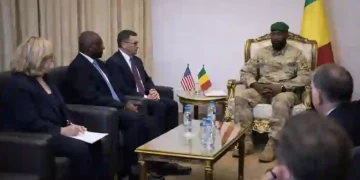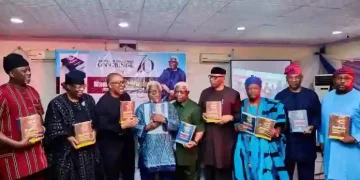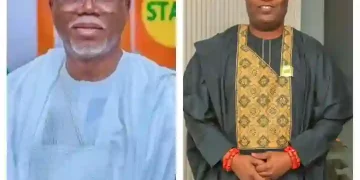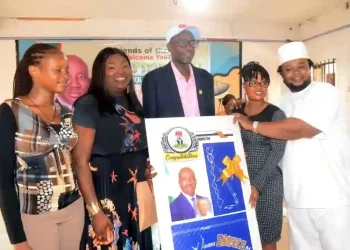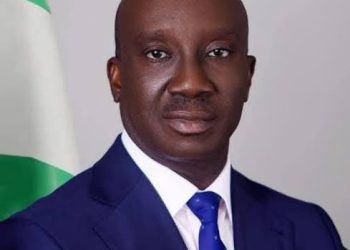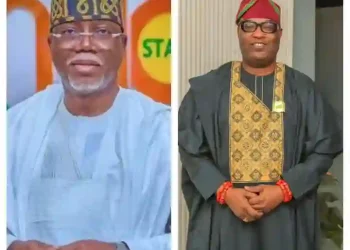The long-awaited revival of the Olokola Free Trade Zone (OKFTZ) has officially commenced, marking a historic return to a bold vision first envisioned in 2004 by former Ogun State Governor and current Senator, Otunba Gbenga Daniel. With the recent submission of formal documentation by Alhaji Aliko Dangote to begin construction of a multi-purpose deep-seaport within the zone, what began as a dream under Daniel’s leadership is now set to reshape Nigeria’s industrial and maritime future.
This major leap forward was reported by Bloomberg on Monday, July 14, noting that Dangote had filed the paperwork in late June 2025. The proposed seaport will be built just 100 kilometres from his existing petrochemical and fertiliser plants in Lagos, with plans to serve as a major export hub for urea, fertilisers, and eventually liquefied natural gas (LNG).
“This isn’t just a win for Dangote or Ogun State,” observers note. “It is a resounding vindication of Otunba Gbenga Daniel’s foresight and commitment to transformational infrastructure that outlives political cycles.”
The OKFTZ was originally conceptualised by Senator Daniel during his first term as governor in 2004, in partnership with the late Ondo State Governor, Dr. Olusegun Agagu. The zone was designed as a regional economic corridor for oil and gas processing, petrochemicals, deep-sea port development, and heavy manufacturing — a massive undertaking aimed at positioning Nigeria as a continental industrial powerhouse.
However, the project was derailed during the administration of former Governor Ibikunle Amosun (2011–2019), which saw the relocation of Dangote’s $16 billion refinery project from Olokola to Lagos. This stall in progress was widely regarded as a missed opportunity and a setback to Ogun’s industrial ambitions.
Now, more than two decades later, Daniel’s vision is rising anew.
“The OKFTZ is back to life!” declared stakeholders jubilantly. “Otunba Daniel’s works will keep speaking for him, no matter how long it takes. This is the power of purposeful governance.”
The planned Atlantic seaport is expected to become Nigeria’s deepest and largest, offering a strategic alternative to the Lekki Deep Sea Port and providing robust export capacity. Dangote’s move into maritime logistics infrastructure is seen as an effort not only to support his rapidly growing empire but also to attract other players into the ecosystem.
“It’s not that we want to do everything by ourselves, but I think doing this will encourage other entrepreneurs to come into it,” Dangote was quoted as saying.
Under the current administration led by Governor Dapo Abiodun, relations between the state government and the Dangote Group have warmed, creating an enabling environment for renewed large-scale investments. In addition to the seaport, Dangote is also investing in a pipeline network to transport LNG from the Niger Delta to Lagos — a plan that could rival existing Nigerian LNG operations.
Meanwhile, Dangote Group is preparing to roll out nationwide fuel distribution in August 2025, leveraging a fleet of 4,000 gas-powered trucks — further underscoring the scale and ambition of the company’s logistical expansion.
With a net worth of $27.8 billion (according to the Bloomberg Billionaires Index), Aliko Dangote’s commitment to the OKFTZ underlines his faith in the region’s industrial potential. Yet, beyond the headlines and boardroom deals, this development is a monumental nod to Otunba Gbenga Daniel’s enduring legacy — a leader who dared to envision what others couldn’t see.
As earth-moving equipment prepares to roll into Olokola and new foundations are laid, one truth stands tall: this is not merely a project revival — it is the return of a dream. A dream planted by a visionary, Otunba Gbenga Daniel, whose foresight continues to bear fruit for generations.

